Gustavo Dudamel is here! But I should quote the posters on buses, lamposts and billboards: “Pasion Gustavo”, “Radiante Gustavo”, “Dramatico Gustavo” (please forgive the absence of diacriticals). The home page of the Los Angeles Times, the still-staid Times, has a special section on Dudamel, down to an article on his childhood (gosh, that’s recent history) complete with photos at age 5, treatment awarded to the most headline-worthy. With the posters on buses, I really don’t think that the Phil is trying to sell concert tickets to bus riders. Instead, they are blanketing the area with the word that something exciting is happening. The parking lot attendant at the central courthouse, who works weekends at Disney Hall, told me how exciting it was to have Dudamel in Los Angeles and asked if I would be coming to the concerts.
I don’t think the Philharmonic’s advertising people created the buzz, but they recognized that this was happening and really decided to ride the waves with it. The Phil has supported a Dudamel video game here, and you can play the on-line version if you choose. The Phil organized a well-thought-out community affair as the welcome concert at the Hollywood Bowl: first individual community groups, primarily of young people; then the Youth Orchestra, conducted by Dudamel; and finally Dudamel conducting the Phil in Beethoven’s 9th. To top things off, they made the concert free (with contributions by Target). I don’t think the Phil quite expected the demand for tickets they received, since they let people stand in line for tickets that had long since been sucked up on the internet. But the people at the Phil learn from mistakes, and for the opening concert at WDCH, they provided a lottery for the free tickets to watch the concert on the large screens mounted in the Music Center plaza. Even the decidedly non-classical alternative newspaper, LA Weekly, did its part in recognizing the rock star level of interest by doing a cover story on Dudamel here. And a single article wasn’t enough, so they brought back our dean of music critics, Alan Rich, (whom they had earlier jettisoned as extraneous) for a nice article here. I particularly commend Mr. Rich’s essay to your attention.
How long has it been since there has been this sort of enthusiastic buzz in classical music? There was the “3 Tenors” fad, but that was only for an occasional concert, not a series. I can remember when Van Cliburn won the Tchaikovsky contest and we rushed out to buy that first record. Several people compare the Dudamel arrival to the appointment of Bernstein, but I didn’t experience how New York reacted and that meant nothing to me. Reading history, there used to be some wild affairs at the Hollywood Bowl, like the orchestrated marriage of Percy Grainger, so perhaps that’s the most comparable. Whatever; we enjoy the attention being given to the music we love.
In a coming post, I’ll talk about the new music high points across Los Angeles in this new season. For this post, let me merely point out that in all but a single program by Dudamel this season there is at least one major modern or contemporary major work of music, not merely a fanfare. That one exceptional program is when he will lead Verdi’s “Requiem”. Perhaps I’m cheating a little by including a program in which the “modern” work is Berg’s Violin Concerto; you’d think that by now the piece would be too old to be considered modern. This year looks pretty good. And next season EPS returns, as well.
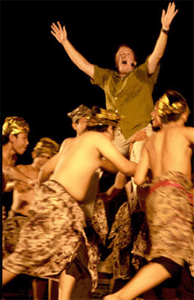 Old age isn’t for sissies or the timid and I think the same thing can be said about writing for the stage, especially if it’s the operatic one. It took Verdi years before he produced something that worked on the boards. Evan Ziporyn’s no stranger to the stage–he’s written and performed Shadowbang–and his new two-act 140 minute amplified opera
Old age isn’t for sissies or the timid and I think the same thing can be said about writing for the stage, especially if it’s the operatic one. It took Verdi years before he produced something that worked on the boards. Evan Ziporyn’s no stranger to the stage–he’s written and performed Shadowbang–and his new two-act 140 minute amplified opera 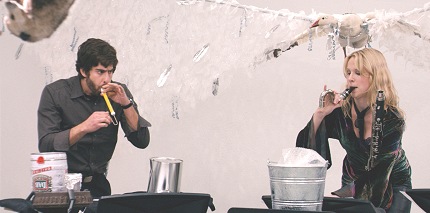
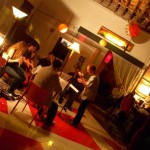 I thought it might be nice to close out the month of interviews from Chicago by featuring a couple musicians from
I thought it might be nice to close out the month of interviews from Chicago by featuring a couple musicians from 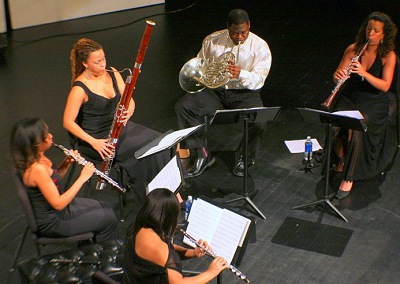
 But just now the latest offering is stellar jazz vibraphonist
But just now the latest offering is stellar jazz vibraphonist  Received a blurb from the LA Phil the other day, which in all caps proudly declares “LA PHIL LAUNCHES MICROSITE CELEBRATING INCOMING MUSIC DIRECTOR GUSTAVO DUDAMEL” … Kaboom!… Here’s the relevant bit (my bolds):
Received a blurb from the LA Phil the other day, which in all caps proudly declares “LA PHIL LAUNCHES MICROSITE CELEBRATING INCOMING MUSIC DIRECTOR GUSTAVO DUDAMEL” … Kaboom!… Here’s the relevant bit (my bolds): A few great concerts you might be able to catch, or might be missing:
A few great concerts you might be able to catch, or might be missing: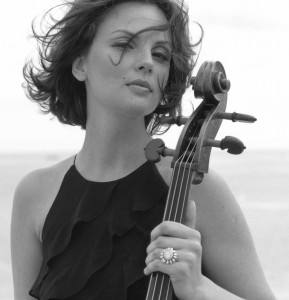 Nina Kotova premieres a new work by Christopher Theofanidis this weekend in Dallas. In the second part of looking at the new work, I spoke with the soloist about the piece, and learned more about how the piece came into being. Listen to our conversation:
Nina Kotova premieres a new work by Christopher Theofanidis this weekend in Dallas. In the second part of looking at the new work, I spoke with the soloist about the piece, and learned more about how the piece came into being. Listen to our conversation: